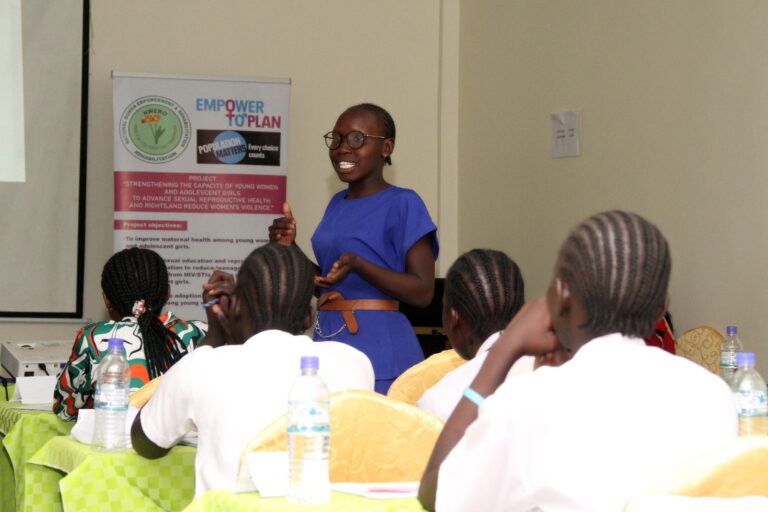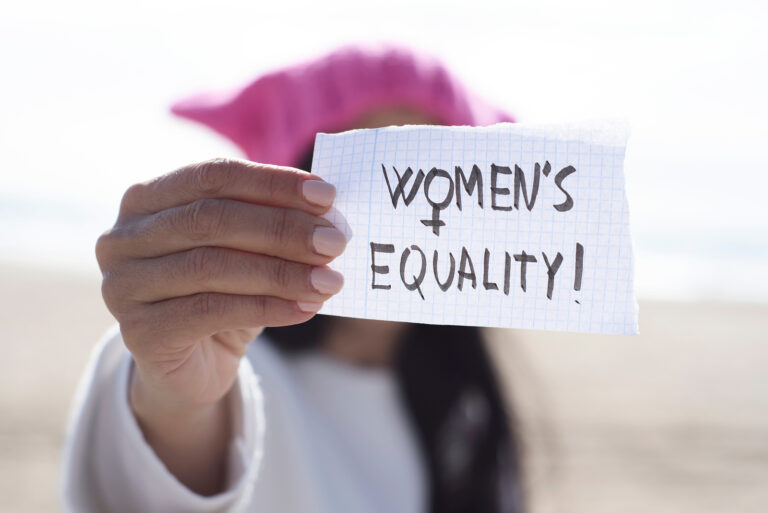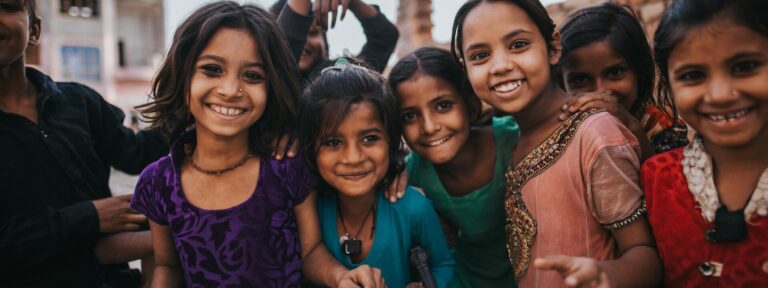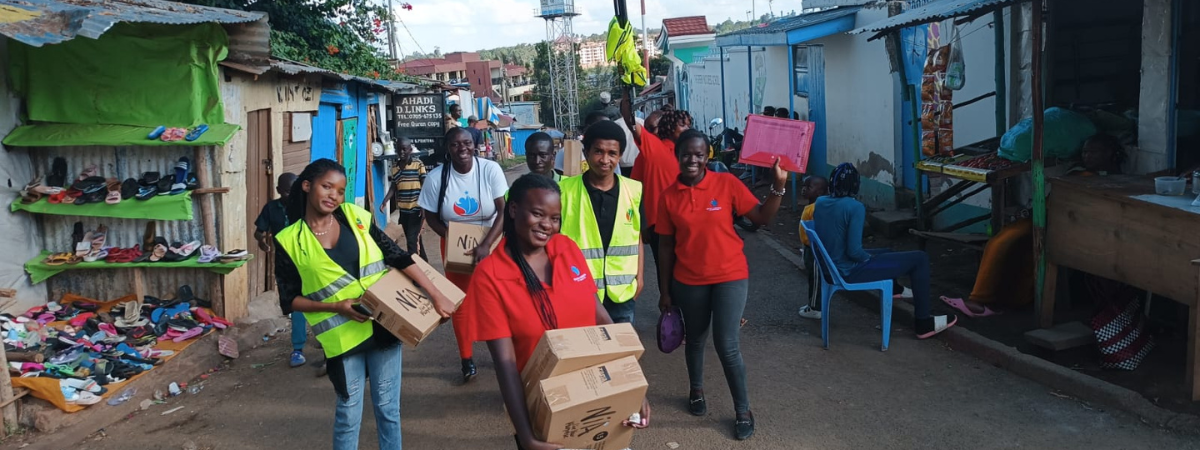
AWOCHE Foundation: Empowering change in Nairobi, Kenya
Since 2016, AWOCHE Foundation has been at the forefront of positive change in Kibera, Nairobi, Africa’s largest informal settlement. Their mission revolves around the education, empowerment, and the creation of opportunities for adolescents, youth, and women, with the overarching goal of enabling them to fulfil their potential in life.
Nairobi, Kenya’s vibrant capital, has consistently attracted individuals from various corners of the country in pursuit of improved livelihood prospects. The city’s growth is characteristic of the rapid urbanisation and population expansion experienced in sub-Saharan Africa, evolving from 290,000 residents in 1960 to an estimated of 4.3 million in 2023.
This has led to the development of informal settlements, with around 2.5 million people residing in approximately 200 slum settlements, constituting 60% of the city’s population while occupying only 6% of the land (www.kibera.org.uk). Notably, Kibera’s population surged from 3,000 residents in 1960 to around 1 million, and Korogocho’s population climbed from 2,000 in 1970 to 400,000, according to the latest estimates.

COMPLEX CHALLENGES IN INFORMAL SETTLEMENTS
The African Population and Health Research Centre reveals the difficult circumstances experienced by residents in informal settlements. They grapple with severe poverty, challenging socio-economic conditions, and high incidences of crime (90% committed by young people). Basic needs such as clean water, sanitation, hygiene, health, education, and jobs are common struggles, with environmental sustainability and sexual and reproductive health and rights (SRHR) often neglected due to a lack of supporting infrastructure and resources.
In response to these challenges, we have partnered with AWOCHE Foundation to implement community development initiatives across Kibera and Korogocho, especially focusing on adolescent SRHR and environmental sustainability. Your support can drive meaningful change in these localities.
Join us by contributing to our one-month crowdfunding campaign supporting these communities.
A NEED FOR COMPREHENSIVE INTERVENTION
Having successfully executed Empower to Plan projects in both Kibera (Ghettoh Clean Youth Group) and Korogocho (KOMB Green Solutions) which contributed to improving access to clean water and sanitation during the pandemic and intensifying our commitment to environmental sustainability, respectively, we realised the need for a more comprehensive intervention in these areas which systematically addresses pertinent challenges and fosters sustainable development.
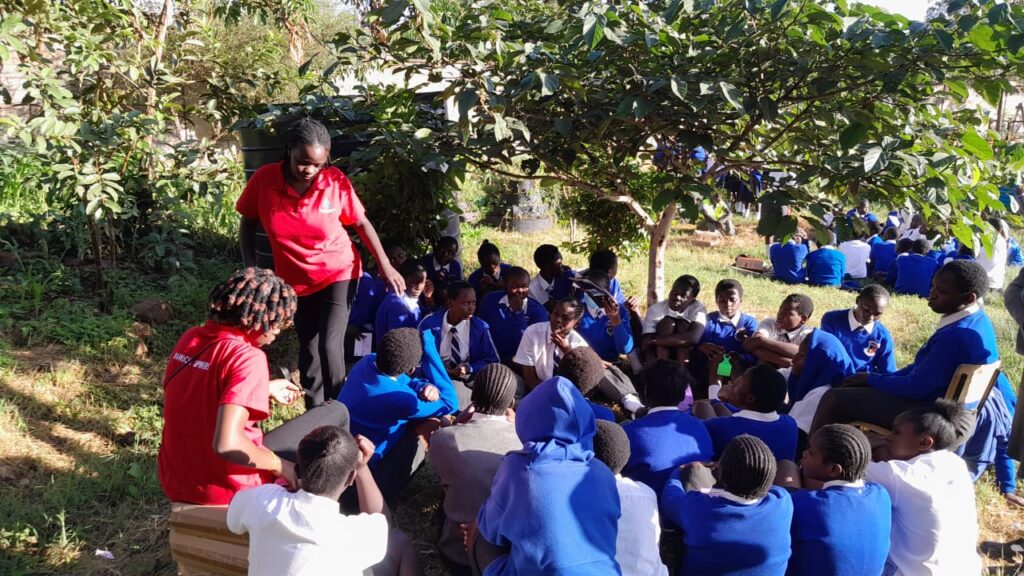
To enable this, we are supporting AWOCHE Foundation, an organisation with a significant presence in Kibera. To expand their efforts into Korogocho, AWOCHE Foundation will leverage the established presence of KOMB Green Solutions and tap into their expertise in promoting community-driven environmental sustainability.
COLLABORATION EMPOWERS BOTH ORGANISATION
This collaboration empowers both organisations to instil essential life skills, enhance communities’ awareness of their sexual and reproductive health and rights, and sow the seeds of environmental consciousness in these localities.
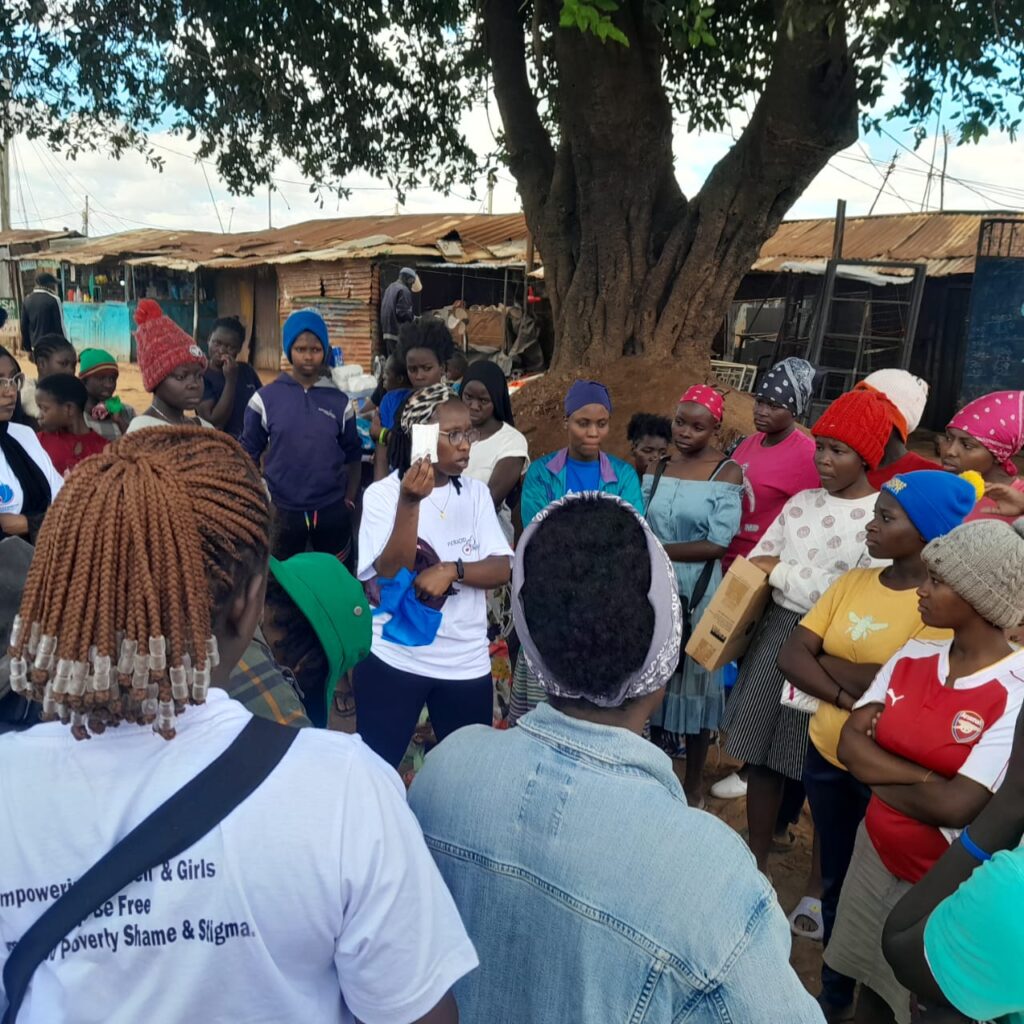
Your support will contribute to various ongoing initiatives:
- Mentorship sessions: empowering 100 adolescent students with essential life skills.
- SRHR and environmental ambassadors: equipping 20 individuals to advocate for SRHR and environmental sustainability.
- KOMB Green Solutions Volunteers: equipping 10 volunteers with the knowledge to further SRHR and environmental initiatives.
- Community clean-up and tree plantation drives: taking direct actions to enhance the environment.
- Monthly community radio talk shows: raising awareness on SRHR and environmental sustainability.
Your support for AWOCHE is not just a donation but an investment in the transformative power of change. It is a beacon of hope in Kibera and Korogocho, enabling impactful initiatives that uplift communities, empower individuals, and create a brighter future. With our combined efforts, we can build bridges to opportunity, ensuring that every fund raised is a step towards positive, lasting change in the lives of those who need it most.”
Everlyne Bowa, CEO and Founder, AWOCHE Foundation
CHALLENGES FACED BY KIBERA AND KOROGOCHO
In Kibera and Korogocho, residents face formidable challenges, particularly in environmental sustainability and SRHR. These localities possess limited public services, including clean water, sewage systems, public schools, and health clinics. The absence of sanitation and adequate nutrition leads to widespread illnesses, contributing to the high mortality rate. Shockingly, the life expectancy in Kibera is just 30 years.
Notably, 75% of Kibera’s population is under 18 years old, with almost 40% of school-age children, particularly girls, unable to attend school. Korogocho, demographically younger, faces similar challenges. Additionally, high levels of crime, primarily committed by unemployed youth, pose a shared challenge in both Kibera and Korogocho. In Korogocho, drug abuse, organised crime, and access to illegal firearms significantly contribute to insecurity.
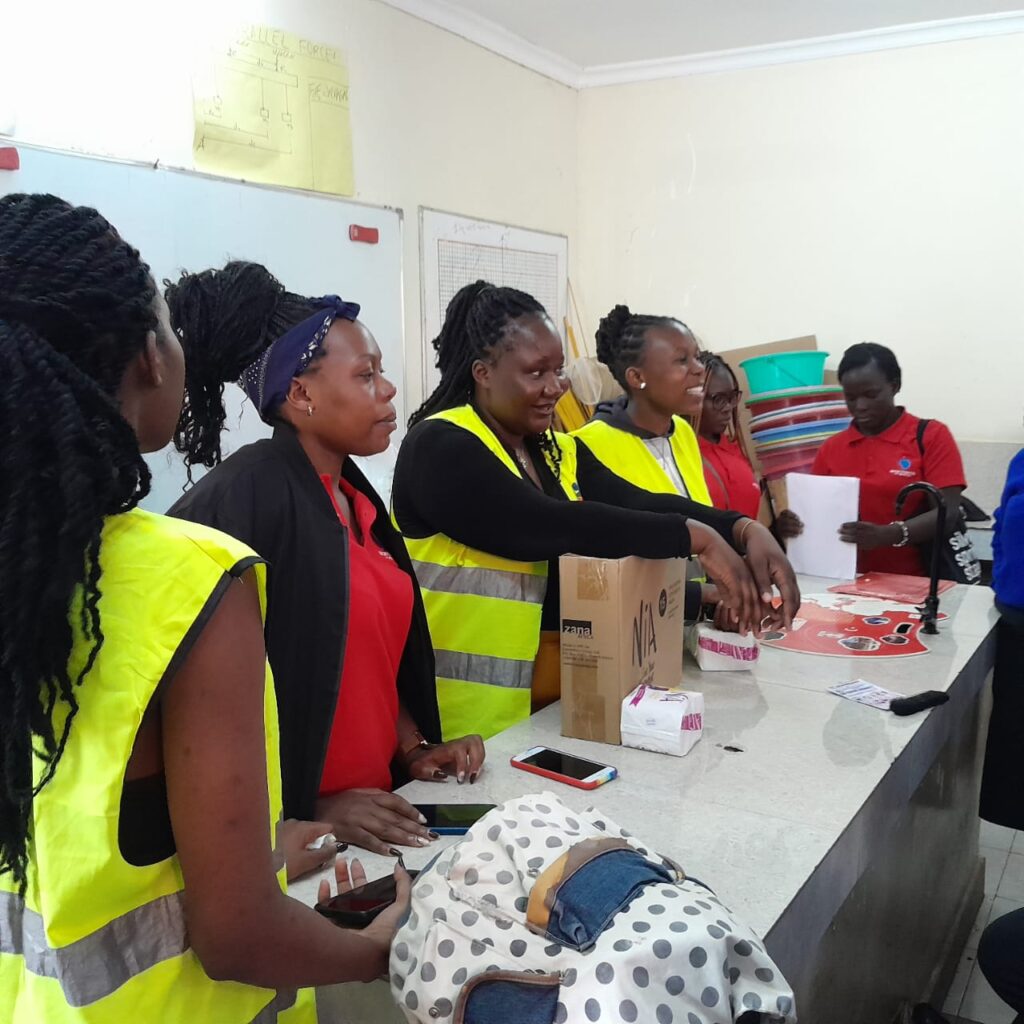
The shared theme of SRHR challenges emerges with 50% of girls in Kibera aged 16 to 25 experiencing unwanted pregnancies, and in Korogocho, an alarming 76.7% of pregnant and parenting adolescent girls reporting unintended pregnancies. Poverty, sexual violence, poor contraceptive knowledge, and restrictive policies worsen these challenges. Additionally, child marriage hinders educational opportunities. Menstrual hygiene management compounds SRHR challenges, as inadequate facilities and knowledge impact the well-being and dignity of women and girls in both localities.
Environmental problems, intensified by rapid urbanisation, heighten residents’ hardships. Kibera generates 75,000 tonnes of waste annually, impacting health and the environment. Further, residents’ reliance on the Nairobi Dam for water increases health risks such as typhoid and cholera.
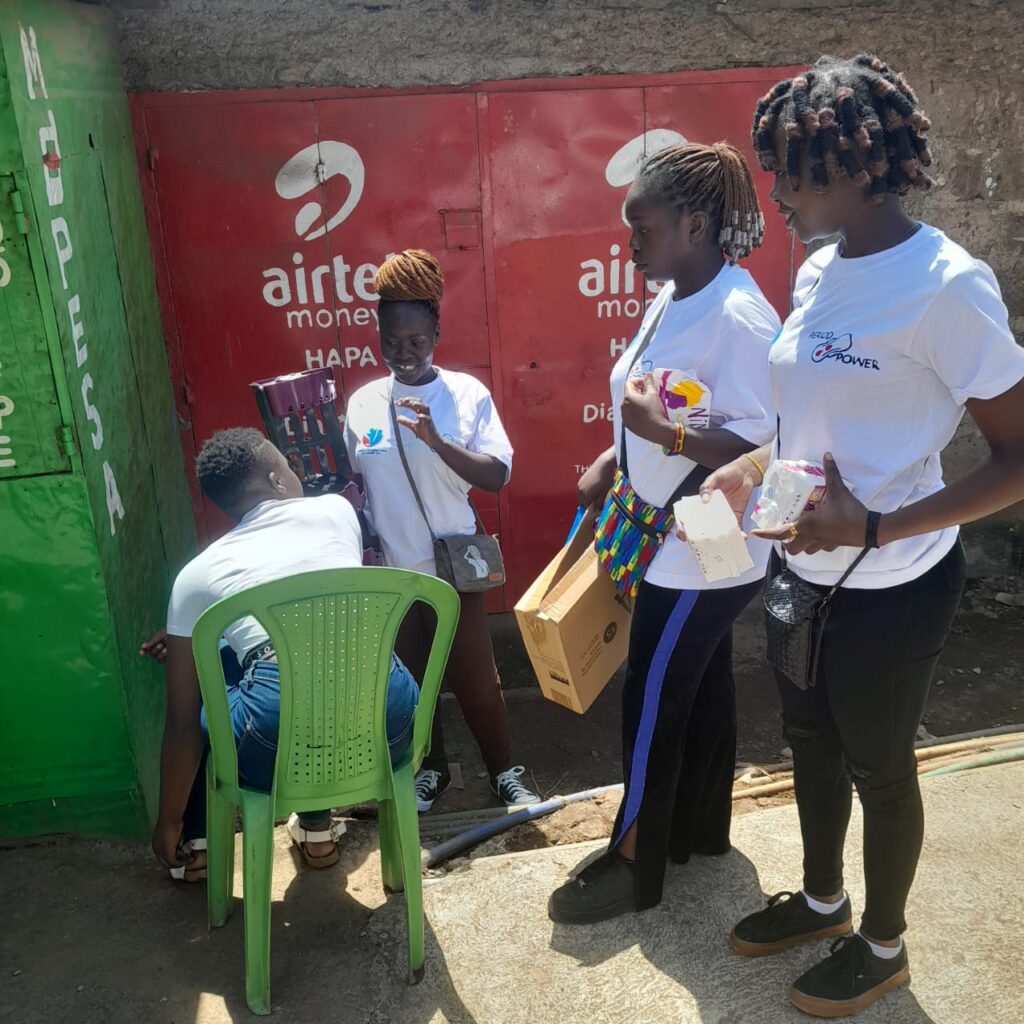
In summary, residents of Kibera and Korogocho grapple with interconnected challenges. AWOCHE Foundation and KOMB Green Solutions are making a meaningful impact, and your support can be a catalyst for their transformative efforts. Together, we can foster resilience and establish lasting solutions for the resilient residents of Kibera and Korogocho.
Thank you.

